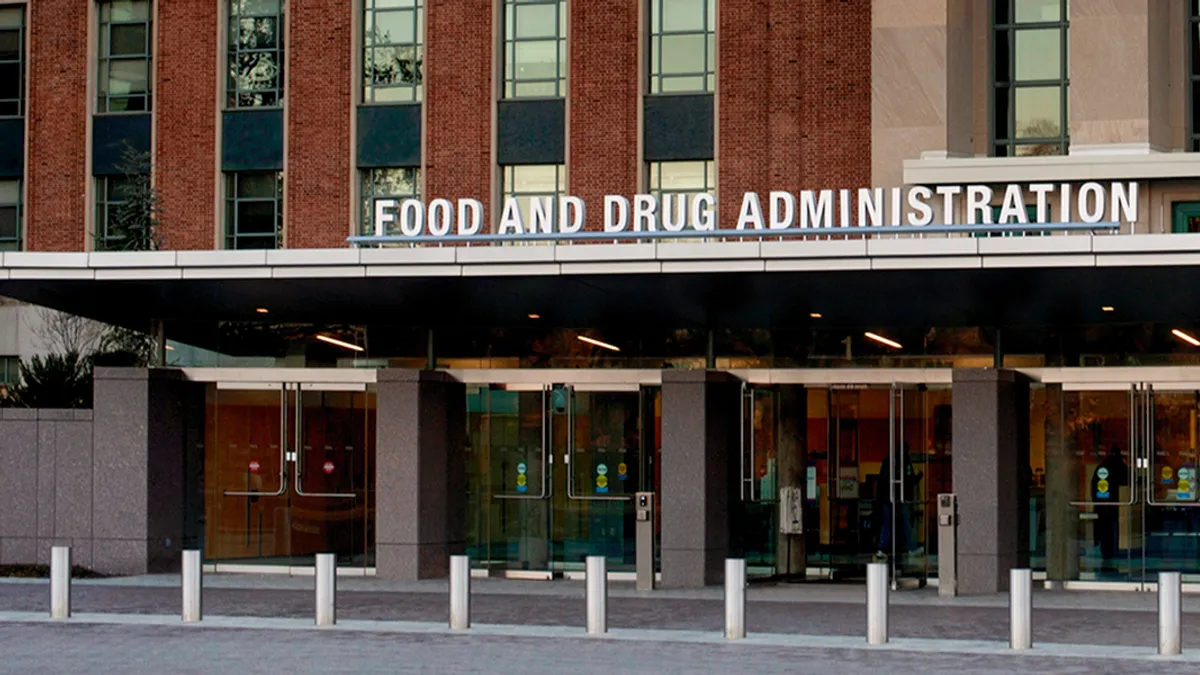Dive Brief:
-
FDA disclosed Monday it awarded a De Novo marketing authorization to San Francisco and London-based Mahana Therapeutics for a product called Parallel, which according to company materials is an 8-week cognitive behavioral therapy program for people with irritable bowel syndrome.
-
It builds on authorizations earlier this year for other digital therapeutics, including at the beginning of November for an Apple Watch app to interrupt PTSD-related nightmares and in June for a video game product aimed at improving attention function in children with ADHD.
- The nod to Mahana is the fifth De Novo that FDA awarded in November, the most of any month in 2020, bringing the annual total so far to match all of 2019’s with one month still remaining this year.
Dive Insight:
FDA has pushed for medtech companies to more often use the De Novo premarket pathway, which exists to classify first-of-their-kind technologies that regulators believe are safe and effective under general and special controls alone, but for which no legally marketed predicate device exists.
In 2018, then-FDA Commissioner Scott Gottlieb sought to support use of the pathway by clarifying criteria and procedures, in part to improve the 510(k) clearance process by establishing more modern predicate devices. "As a result, we expect to see more developers take advantage of the De Novo pathway for novel devices," Gottlieb said in a statement at the time.
However, according to FDA's De Novo classification database, new authorizations have dropped off since a 2018 surge.

One medtech sub-sector taking advantage of the De Novo process is digital therapeutics, defined by one trade group as software-based, evidenced therapeutic interventions that prevent, manage or treat a variety of health conditions. For instance, Pear Therapeutics in 2017 established a classification for computerized behavioral therapy device for psychiatric disorders with the FDA green light for its reSET mobile app-based treatment for substance use disorder.
Mahana is backed by Lux Capital and Jazz Ventures and entered a licensing agreement with Kings College London in January. The company got FDA's green light for its De Novo submission this past week having previously assessed its irritable bowel syndrome program in a 558-patient randomized controlled trial, the findings of which were published in 2019 in a BMJ journal. A Lancet publication tracking outcomes to 24 months claimed both telephone therapist-delivered and web-based CBT "can provide long-term benefits" for IBS patients.
The company did not make additional information on Parallel’s commercialization or other next steps available prior to this publication.
Among the other De Novo submissions OK’d in recent weeks was an Edwards Lifesciences fluid management software that uses machine learning.
"The software utilizes an algorithm that continuously monitors a patient’s hemodynamic status to predict when an individual patient may benefit from additional fluids, then alerts the clinician. It is capable of adapting its algorithm in real-time by tracking individual responses to the administration of fluid throughout a procedure," a spokesperson said in an email, adding that Edwards plans to begin commercializing the product in 2021. That rollout appears a bit delayed, per a target to roll out Acumen Assisted Fluid Management in 2020 laid out at an investor event in 2018.
Swedish medtech Acarix submitted a successful De Novo application for its CADScor system, which involves a sensor placed on the skin above the heart to monitor "sounds of cardiac contraction movement and turbulent flow." A heart signal is recorded, processed and displayed on a device screen within 10 minutes, according to the company.
"This approval enables us to take all measures to prepare the market launch in the USA," the company said in an announcement.
Salt Lake City, Utah-based biotech BioFire Defense, which has been focused on COVID-19 diagnostics this year, also received a De Novo authorization for a global fever panel classified as the first device "to detect and identify selected microbial agents that cause acute febrile illness."











